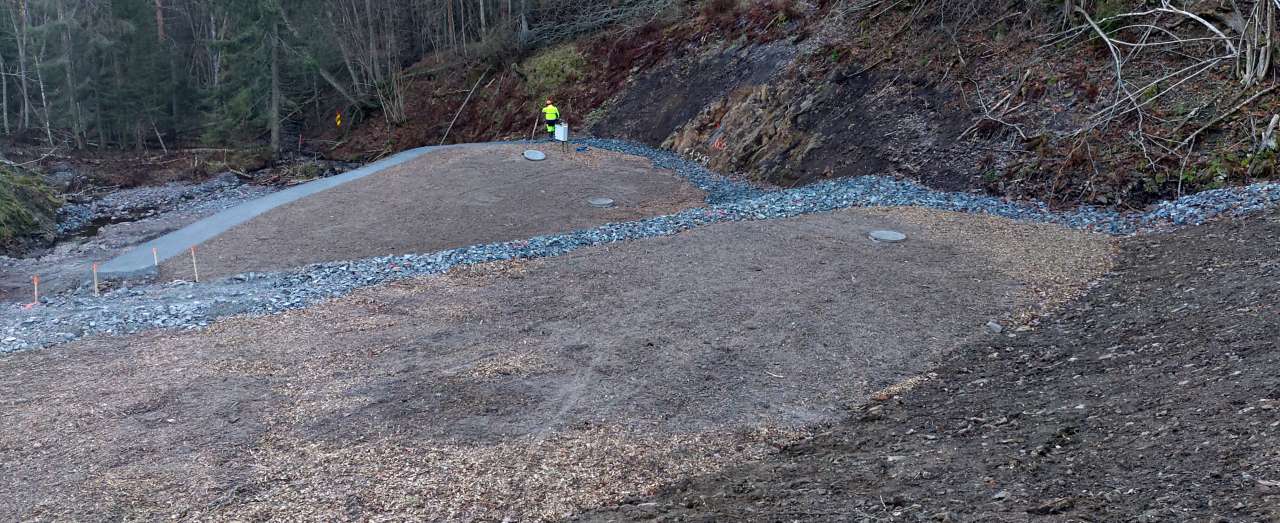N-filter installed at waste rock landfill

Photo: Roger Roseth
As part of the construction of the E16 Bjørum-Skaret road, a pilot nitrogen (N) filter was installed at a waste rock landfill in Nordlandsdalen. The aim is to reduce the serious impact that nitrogen runoff from such landfills can have on the aquatic environment.
The Oslo Fjord is struggling with algal bloom and partial ecological collapse. In the media, agricultural runoff and sewage discharge take the blame. Another significant cause is runoff from landfills containing waste rock from tunnel blasting.
The explosive used to blast tunnels is a pumpable emulsion, which is mostly composed of the nitrogen compound ammonium nitrate, with 5–15 percent sodium nitrate.
“With about 2 million cubic meters of waste rock, there could theoretically be between 42 and 128 metric tons of nitrogen runoff from a landfill. Such large influxes of nitrogen are problematic for the Oslo Fjord, and can have negative effects on freshwater,” says Senior Researcher Roger Roseth.
As part of the ongoing E16 construction, there is now a full-scale treatment facility to remove nitrogen in runoff from a waste rock landfill in Nordlandsdalen. The filter began operating in the Autumn of 2021, and it is the first and only one of its kind in Norway.
“The filter we constructed is based on a pilot model I had in my garden. It contains woodchips mixed with coarse shell sand to maintain a high pH,” says Roseth.
For the N-removal to work, it is important to have sufficient quantities of organic matter to create an oxygen-free environment. The bacteria will then use the oxygen from the nitrate to break down the organic matter, which will result in most of the nitrogen being released into the air as ordinary nitrogen gas instead of being carried along in the runoff.
“It remains to be seen if this will work on a large scale. The results from the pilot project are good, and preliminary results from the nitrogen filter are also promising,” says Roseth.
Contacts

Contacts

